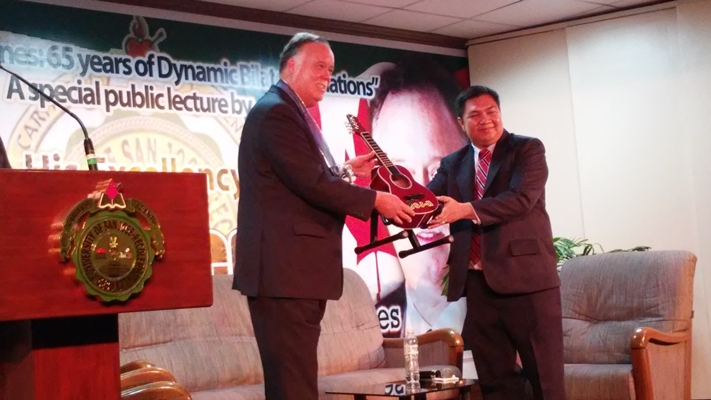Canada’s envoy to the country said the Philippines is among the 25 countries of focus for development by the north American country.
But the relationship between the two countries according to the Canadian Ambassador to the Philippines Neil Reeder is reciprocal.
Speaking before students of the University of San Jose-Recoletos last Monday, Ambassador Reeder said, the Philippines, he said has been sending people to his country, “and that helps the economy.”
There are over 800,000 Canadians who trace their roots to the Philippines, and 30,000 Filipinos have been given permanent resident visas. 47,000 Filipinos have also been granted temporary or visitor visas.
In 2012, Canada granted 8,292 Filipinos with temporary foreign worker status.
Aid
Since 1986, Canada has provided $800 million to Philippine partners in the humanitarian sector.
This has benefited over 35,000 micro-entrepreneurs, small holder farmers and low-skilled workers, 70 percent of whom are women, have also been given development assistance.
In last year’s earthquake that hit hard Bohol, Canada provided $1 million humanitarian aid through the Unicef, Red Cross and World Vision.
For supertyphoon Yolanda (Haiyan) response, Canada provided over $175 million.
Despite all of these contributions, Reeder said, the Philippines does not owe Canada anything.
“We have done what we do because we admire the Philippines. We want to help the country. The whole humanitarian impulse of Canadians has long been in our history.”
Education
Canada continues to welcome a growing number of students from the Philippines for high school, undergraduate and post-graduate studies.
“Two hundred fifty thousand students study in Canada every year so we must be doing something right,” Reeder said.
Trade and Tourism
Furthermore, Reeder said that the Philippines has also been designated as a priority emerging market under Canada’s Global Markets Action Plan (GMAP).
“We see export opportunities in agriculture, agri-food, defense and security, education, information and communications technology, infrastructure, mining, and sustainable technologies,” he said.
Reeder said that two-way trade that amounts to about $1.6 billion annually is good for both countries.
Among the major Canadian investments in the country are Sun Life, Manulife, and Telus Bombardier Aerospace.
Canada is one of the top 10 sources of tourists to the Philippines, and that arrivals now exceed 120,000 annually.
Reeder said that Canada also supports the Aquino administration’s agenda of reform and economic development.
It also supports the Public-Private Partnerships (PPP) Centre in the Philippines, to which it has already given $4.2 million in aid.
Reeder was in Cebu City last Monday to attend to the opening of the new office of the Honorary Consulate, which has been charged to have jurisdiction over all Canadian affairs in southern Philippines.
